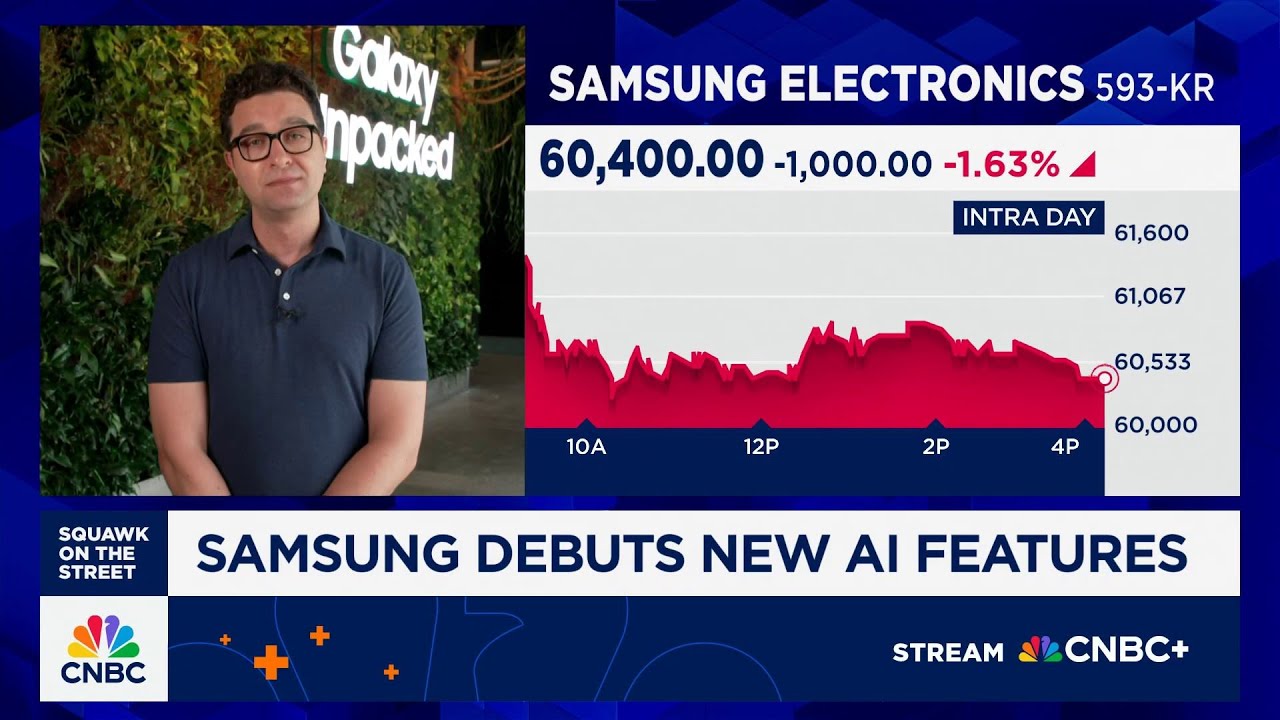Samsung has introduced advanced AI features powered by Google’s Gemini AI in its new Galaxy Flip and Fold 7 foldable phones, enabling interactive, real-time assistance through multimodal capabilities like live video analysis for personalized fashion advice. This strategic partnership contrasts with Apple’s cautious AI approach, highlighting Samsung’s lead in integrating cutting-edge AI into consumer devices and potentially setting a new industry standard.
Samsung recently unveiled its latest foldable phones, the Galaxy Flip and Fold 7, in Brooklyn, New York, highlighting not just the hardware but also the integration of advanced artificial intelligence features powered by Google’s Gemini AI. Unlike traditional AI assistants, Samsung’s implementation includes multimodal capabilities, allowing users to interact with the AI through live video feeds from the phone’s camera. This enables the AI to provide real-time assistance, such as analyzing a user’s outfit through a new selfie feature and offering fashion recommendations, showcasing a more interactive and personalized AI experience.
This move by Samsung contrasts sharply with Apple’s current approach to AI. At Apple’s recent Worldwide Developers Conference, AI took a backseat, with significant updates like the much-anticipated Siri overhaul being delayed until 2026. This delay reflects a cautious stance from Apple after previous overpromises in AI capabilities. Meanwhile, Samsung is aggressively pushing forward by partnering with Google to leverage Gemini, signaling a strategic choice to build on existing AI technology rather than developing everything in-house.
The partnership trend in AI development is becoming increasingly prominent. Reports suggest that Apple might also shift its strategy by licensing AI technology from companies like Anthropic or OpenAI instead of building large language models independently. Samsung’s collaboration with Google exemplifies this approach, allowing them to rapidly integrate cutting-edge AI features into their devices without the lengthy development process. This strategy could accelerate innovation and deployment in consumer electronics.
Despite these advancements, the market response to AI-enhanced devices remains uncertain. While AI features are becoming a key selling point, it is still unclear how much they will influence consumer purchasing decisions. Past experiences, such as the lukewarm reception to AI marketing in the iPhone 16, suggest that while consumers are interested in smarter assistants, the impact on sales may be gradual. The success of AI integration will likely depend on how seamlessly and usefully these features enhance everyday smartphone use.
Looking ahead, Samsung’s bold AI integration could set a new standard in the smartphone industry, challenging Apple to catch up in the AI race. History shows that Apple has been able to quickly capitalize on trends initiated by competitors, such as the shift to larger screens over a decade ago. Whether Apple can replicate this agility in AI remains to be seen, but for now, Samsung is leading the charge by embedding sophisticated AI capabilities into its latest foldable devices, potentially reshaping user expectations for smart technology in mobile phones.
